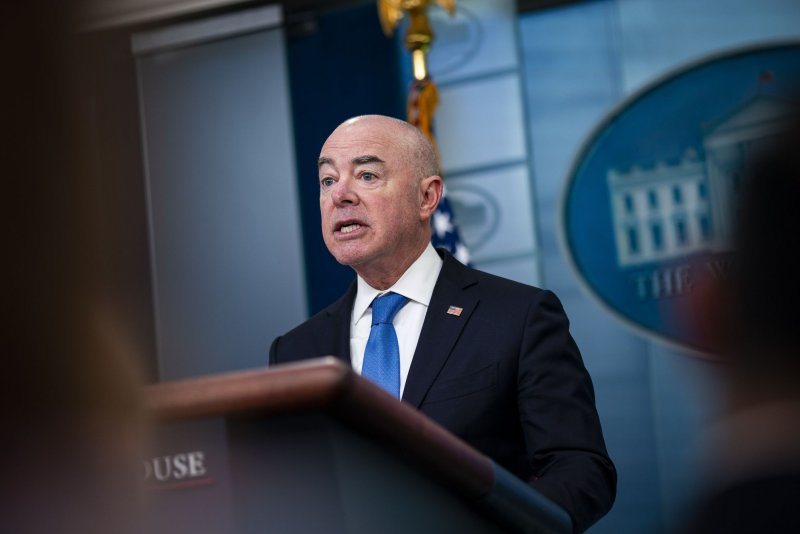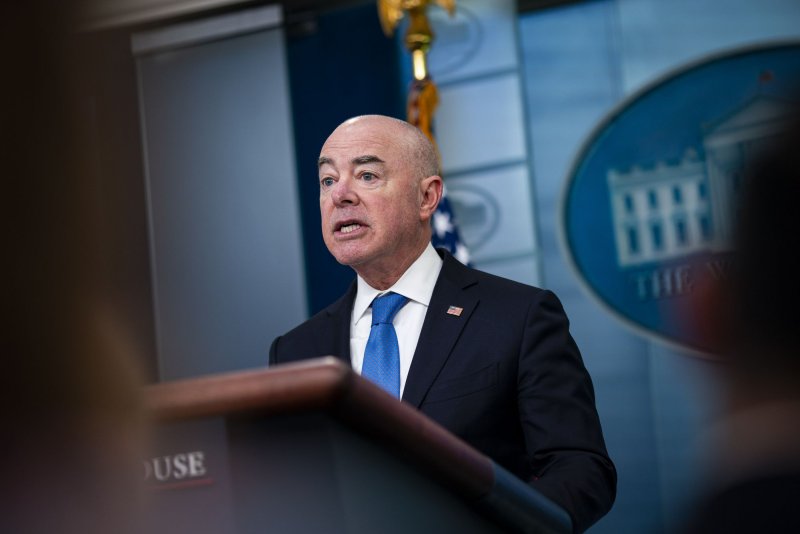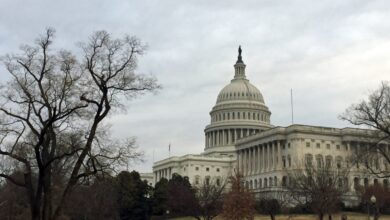Biden Extends Temporary Status El Salvador
Biden extends temporary status El Salvador, marking a significant development in US immigration policy. This decision, stemming from El Salvador’s ongoing challenges, promises to impact both the Salvadoran population and US immigration procedures. The extension likely reflects a complex interplay of humanitarian concerns, political considerations, and economic factors.
The historical context of temporary protected status (TPS) programs in the US, and the specific criteria for designation, will be explored. The unique circumstances surrounding El Salvador’s situation will be analyzed, comparing it to other countries that have received TPS. Furthermore, we will delve into the Biden administration’s approach to immigration and the potential short and long-term effects of this decision.
Background of Temporary Status
Temporary Protected Status (TPS) is a humanitarian program administered by the United States Citizenship and Immigration Services (USCIS). It allows certain individuals who are either nationals of or residing in countries experiencing extraordinary and temporary conditions, such as natural disasters or armed conflict, to remain in the U.S. temporarily. This program offers a pathway for these individuals to avoid deportation while awaiting the restoration of stability in their home countries.
Criteria for TPS Designation
TPS designations are not arbitrary; specific criteria must be met for a country to qualify. The U.S. government assesses the situation in the affected country, considering factors like ongoing armed conflict, natural disasters, or epidemics. The assessment examines the severity of the situation, its impact on the population, and the ability of the affected country to adequately address the needs of its citizens.
Process of Qualifying for TPS
The process by which a country qualifies for TPS involves a thorough review by the U.S. government. This review considers the exceptional circumstances in the country, examining the impact of those circumstances on its population. The U.S. government may consult with international organizations and other relevant bodies to obtain a comprehensive understanding of the situation.
Crucially, this assessment considers the country’s capacity to address the needs of its citizens and the duration of the crisis.
Typical Duration of TPS Designations
TPS designations are typically temporary, with specific durations. These durations vary depending on the circumstances of each individual country and the ongoing crisis. They are not permanent solutions, but rather temporary protections for individuals until conditions in their home countries improve. The duration of TPS can range from a few months to several years, depending on the factors mentioned above.
Potential Impacts of TPS on the Affected Population
TPS has significant impacts on the lives of the affected individuals. It allows them to remain in the U.S., providing stability for themselves and their families, while also potentially allowing them to maintain economic activity and contribute to the U.S. economy. However, it’s important to acknowledge the potential challenges associated with TPS. Individuals may face limitations on their ability to obtain certain employment opportunities or to fully integrate into society.
The program also necessitates careful consideration of its long-term impacts on the affected population and the potential need for sustainable solutions.
El Salvador’s Situation: Biden Extends Temporary Status El Salvador
El Salvador’s recent circumstances have brought it to the forefront of discussions surrounding temporary protected status (TPS). Understanding the specific challenges and potential impacts of such a designation is crucial for a comprehensive perspective. This examination delves into the factors contributing to El Salvador’s situation, its unique position compared to other TPS recipients, and the potential consequences of a TPS designation.The potential designation of Temporary Protected Status (TPS) for El Salvador hinges on a complex interplay of factors.
The country’s economic struggles and the impact of natural disasters or other extraordinary circumstances have undoubtedly contributed to the potential need for such a designation. The government’s efforts to address these challenges, as well as external support, are crucial to understanding the trajectory of the situation.
Circumstances Leading to Potential TPS
El Salvador faces persistent socioeconomic challenges. High levels of poverty and violence, often intertwined with migration flows, have long been issues in the country. Recent natural disasters or other extraordinary events have further exacerbated these difficulties. These factors, combined with ongoing regional instability, create conditions that necessitate careful consideration of humanitarian concerns. This situation has led to a potential request for TPS, recognizing the hardships faced by Salvadoran citizens.
Challenges Facing El Salvador
El Salvador grapples with a multifaceted array of challenges. These include, but are not limited to, persistent poverty, high rates of violent crime, and significant levels of unemployment. The country also faces the daunting task of providing adequate resources to its citizens while addressing these persistent problems. These factors contribute to the ongoing need for external assistance and support to alleviate the existing hardships.
Comparison to Other TPS Recipients
El Salvador’s situation has parallels to other countries that have received TPS. Countries facing similar socioeconomic challenges, natural disasters, or regional conflicts have often sought and received temporary protection for their citizens. However, each case presents unique characteristics, making a direct comparison complex. Examining historical trends in TPS designations can offer valuable insights into the decision-making process and potential outcomes.
Biden’s extension of temporary status for El Salvador is a significant move, offering crucial support during a challenging time. Meanwhile, researchers are making strides in other areas, like the new Parkinson’s treatment developed at Stanford, which could potentially revolutionize care for millions. This innovative approach, detailed in a recent study ( new parkinsons treatment developed at stanford could help millions ), highlights the dedication to finding solutions for complex health issues.
Hopefully, this same commitment to helping people will continue in the ongoing support for El Salvador.
Potential Economic and Social Impacts
A TPS designation for El Salvador could have significant economic and social impacts. A potential influx of Salvadoran citizens seeking temporary protection could impact the labor market, potentially straining resources. Conversely, the designation might also provide much-needed support to the Salvadoran economy, and the overall impact will depend on several factors, including the scale of the designation and the government’s ability to manage the situation.
The social implications, including potential cultural shifts and community integration, are also significant factors to consider.
Timeline of Significant Events
- 2023: Initial reports emerge regarding potential TPS designation. These reports highlight the prevailing conditions in El Salvador and the potential humanitarian crisis. Discussions and consultations with international organizations likely occurred during this period.
- 2024: The U.S. government’s final decision on TPS for El Salvador. This will likely be based on assessments of the ongoing circumstances in El Salvador, considering the potential impacts on both countries.
Biden Administration’s Actions
The Biden administration’s approach to immigration and refugee issues has been a significant departure from its predecessor’s policies. This shift reflects a renewed emphasis on humanitarian concerns and a more comprehensive approach to addressing the complex challenges facing migrants and asylum seekers. The administration’s actions regarding Temporary Protected Status (TPS) for El Salvador, particularly the extension, are a key aspect of this broader strategy.The Biden administration’s immigration policies have sought to address the root causes of migration, such as violence, instability, and economic hardship in countries of origin.
Simultaneously, they have emphasized a more humane and just treatment of those seeking refuge and protection. This approach has been manifested in various initiatives, including the review and reform of existing immigration laws and policies.
Biden Administration’s TPS Policies
The Biden administration inherited a complex situation regarding Temporary Protected Status (TPS). The previous administration had implemented certain restrictions and limitations on TPS programs. The current administration has worked to address these issues and has been actively reviewing and reassessing TPS designations for various countries, including El Salvador. The focus has been on ensuring that TPS designations are appropriate and aligned with the evolving circumstances in countries of origin.
Specific Actions Regarding El Salvador
The Biden administration, in its approach to El Salvador, has prioritized the well-being and safety of its citizens. The decision to extend TPS for El Salvador is a direct result of a comprehensive assessment of the ongoing violence and instability in the country. This assessment likely considered various factors, including the ongoing impact of gang violence, natural disasters, and economic challenges.
Rationale Behind Extending TPS, Biden extends temporary status el salvador
The administration’s rationale for extending TPS in El Salvador is likely multi-faceted. A key consideration is the continuing need for protection for Salvadoran citizens facing severe hardship in their home country. The extension aims to provide a measure of stability and security for those who have already fled violence or natural disasters, preventing further displacement.
Political Considerations
Several political considerations likely influenced the decision to extend TPS for El Salvador. Public opinion, humanitarian concerns, and the potential for negative consequences if TPS were not extended played a significant role. Furthermore, the administration likely weighed the economic impact of the Salvadoran community within the United States and the potential disruptions to communities dependent on Salvadoran labor.
These considerations underscore the complexity of political factors involved in immigration policy decisions.
Potential Impacts and Consequences

The extension of Temporary Protected Status (TPS) for El Salvador presents a complex web of potential impacts, both positive and negative, for both the Salvadoran population and the United States. Understanding these potential consequences is crucial for a comprehensive assessment of the decision. The effects will ripple through various sectors, from the immediate well-being of Salvadoran immigrants to the long-term trajectory of US immigration policy and domestic politics.
Short-Term Impacts on El Salvador’s Population
The extension of TPS will likely provide immediate relief to Salvadoran residents in the US who are eligible for the status. This will translate into stability and a temporary reduction in the economic strain faced by many. Access to essential services, such as healthcare and education, may improve for the TPS population. However, the benefits are not evenly distributed.
Some sectors of the Salvadoran economy may see a surge in demand, while others might struggle to absorb the influx of workers seeking employment. The potential for increased competition in certain job markets needs to be considered.
Long-Term Effects on El Salvador’s Economy and Society
The long-term economic and societal effects of an extended TPS program are multifaceted. A continued influx of remittances could bolster the Salvadoran economy, but this depends on the sustained economic performance in the US. The dependence on remittances may hinder the development of indigenous economic initiatives. Furthermore, the potential for a brain drain, where skilled Salvadorans remain in the US, may impact El Salvador’s future development and human capital.
Biden’s extension of temporary protected status for El Salvador is a significant development, impacting thousands of Salvadorans. Meanwhile, the San Jose Sharks are reportedly making some big moves at the NHL trade deadline, including potential trades for players like William Eklund, Fabian Zetterlund, Mike Grier, and Tyler Toffoli. This flurry of activity highlights the shifting dynamics in the league, but the broader humanitarian issue of temporary protected status for El Salvador remains crucial.
It’s a complex situation with significant implications for both countries.
Potential Effects on US Immigration Policies
The decision to extend TPS for El Salvador may influence future immigration policy decisions. It could set a precedent for other countries facing similar crises or natural disasters. Conversely, it might be perceived as an exception, not a general rule, leading to a hardening of US immigration stances in other cases. The political implications of this decision for US immigration policy are likely to be debated extensively.
Potential Reactions from Different Political Groups and Stakeholders
The extension of TPS is sure to elicit varied reactions across the political spectrum. Proponents of immigration reform may view it as a humanitarian measure, while opponents may argue it encourages illegal immigration. Labor unions might support the extension, citing the contributions of TPS holders to the workforce, while business groups might express concerns about potential labor market impacts.
Civil society organizations, human rights groups, and community leaders will likely play significant roles in shaping public discourse and advocating for the needs of the affected population.
Potential Humanitarian Implications of the Decision
The extension of TPS has significant humanitarian implications, particularly for vulnerable populations in El Salvador. It offers a lifeline to those facing economic hardship, ensuring access to crucial resources. However, the potential for increased strain on already limited social services in the host communities in the US must be acknowledged. The overall impact on the well-being of Salvadorans will depend on how effectively the support systems are implemented.
Structuring Information (for HTML)

Organizing the information surrounding El Salvador’s Temporary Protected Status (TPS) extension requires a clear and accessible format. This section details the structured approach used to present the data, including tables and lists, for a comprehensive understanding of the issue. This method ensures a user-friendly experience, enabling easy navigation and comparison of crucial data points.
Biden’s extension of temporary status for El Salvador is a significant move, offering a lifeline to many. While this is a positive development, it’s interesting to consider the broader context of immigration policies, which often involve complex ethical and practical considerations. This reminds me of the recent news about a Miss Manners kids’ doctor who swore, which sparked quite a debate about appropriate behavior in various professional settings.
miss manners kids doctor swears Ultimately, Biden’s action addresses a real need, and the debate continues as to the best approach for these kinds of situations. The situation in El Salvador needs careful attention, and the US continues to play a vital role in supporting it.
Temporary Protected Status (TPS) Designations for El Salvador
This table presents a structured overview of TPS designations for El Salvador, providing key details such as the date of designation, reason, and duration.
| Country | Status | Date of Designation | Reason for Designation | Duration of TPS |
|---|---|---|---|---|
| El Salvador | Temporary Protected Status | [Date of Designation] | [Reason for Designation, e.g., Natural Disaster, Civil Unrest] | [Duration of TPS] |
Comparison of El Salvador’s Situation with Other TPS Countries
A comparative analysis aids in understanding the specifics of El Salvador’s situation within the context of other countries under TPS. The table below highlights key similarities and differences.
| Criteria | El Salvador | [Example Country 1] | [Example Country 2] |
|---|---|---|---|
| Natural Disaster Impact | [Description of impact] | [Description of impact] | [Description of impact] |
| Socioeconomic Conditions | [Description of conditions] | [Description of conditions] | [Description of conditions] |
| Political Stability | [Description of political climate] | [Description of political climate] | [Description of political climate] |
Potential Impacts of Extending TPS for El Salvador
This table Artikels the potential positive and negative impacts that may result from extending TPS to El Salvador.
| Impact | Positive | Negative |
|---|---|---|
| Economic | Increased economic activity, reduced unemployment | Potential strain on resources, inflation |
| Social | Reduced migration pressure, improved community cohesion | Potential social tensions, cultural integration challenges |
| Political | Strengthened diplomatic ties, improved international relations | Potential political pressure, potential for abuse of system |
Biden Administration Actions Regarding El Salvador’s TPS
This table details actions taken by the Biden administration concerning El Salvador’s TPS, providing the action, date, and a brief description of each.
| Action | Date | Description |
|---|---|---|
| [Action 1, e.g., Announcement of review] | [Date] | [Detailed description of action] |
| [Action 2] | [Date] | [Detailed description of action] |
Potential Political Reactions
This section Artikels potential reactions from various political groups to the extension of TPS for El Salvador.
| Political Group | Potential Reaction |
|---|---|
| Advocacy Groups | Support for extension, calls for comprehensive solutions |
| Government Officials | Mixed reactions, ranging from support to cautious optimism |
| Opposition Parties | Potential opposition, concerns about economic impact |
Illustrative Information (for visuals)
Visual representations are crucial for understanding complex issues like El Salvador’s temporary protected status and the potential impact on its citizens. These visuals provide a concise and accessible way to grasp the scope and nuances of the situation.
Geographical Location of El Salvador
El Salvador is a small Central American country, situated in the heart of the region. A map depicting its location within the broader Central American isthmus, highlighting its proximity to neighboring countries like Honduras, Guatemala, and Nicaragua, would be helpful. The map could use color-coding to clearly distinguish El Salvador from its surroundings, and perhaps include major cities for context.
A key would clearly label the surrounding countries.
El Salvadorian Immigrants in the US Over Time
A line graph would effectively illustrate the trend of El Salvadorian immigration to the US over time. The graph would show the number of immigrants from El Salvador in the US on the y-axis and the years on the x-axis. This would visually represent the fluctuating immigration patterns, including potential spikes during periods of instability or economic hardship in El Salvador.
The graph would clearly indicate years, making the trend apparent.
Potential Economic Impact on El Salvador
A series of bar graphs could represent the potential economic impact of the temporary protected status. One bar graph could contrast El Salvador’s GDP before and after the program, demonstrating the potential gains or losses in economic activity. Another bar graph could depict the change in remittance inflows, showing the potential increase or decrease in money sent home by Salvadoran immigrants in the US.
Different color-coding would highlight specific categories, and a legend would clearly label each component. Data labels on the bars would offer specific figures and percentages.
History of TPS Programs
A timeline would illustrate the history of Temporary Protected Status (TPS) programs in the US. The timeline would highlight key dates and events, such as the enactment of the legislation, past TPS designations for various countries, and examples of similar programs in other nations. Different colored segments could highlight the varying lengths of each TPS program.
Comparison to Other Countries Facing Similar Challenges
A table would effectively compare El Salvador’s situation with other countries experiencing similar challenges, such as natural disasters, violence, or economic instability. The table could include columns for the country, the nature of the challenge, the year it began, and the response from the US government in terms of TPS designation. The table would visually highlight the patterns and variations in how these situations have been addressed in the past.
It would allow for easy comparison of the severity of the issues, enabling better understanding of El Salvador’s context within the broader global landscape.
Ultimate Conclusion
In conclusion, Biden’s extension of temporary status to El Salvador presents a nuanced issue with multifaceted implications. The decision, while potentially providing crucial relief to Salvadorans, also raises questions about the long-term sustainability of TPS programs and their effect on US immigration policies. The potential positive and negative impacts, both for El Salvador and the US, will be a key focus in the coming weeks and months.






